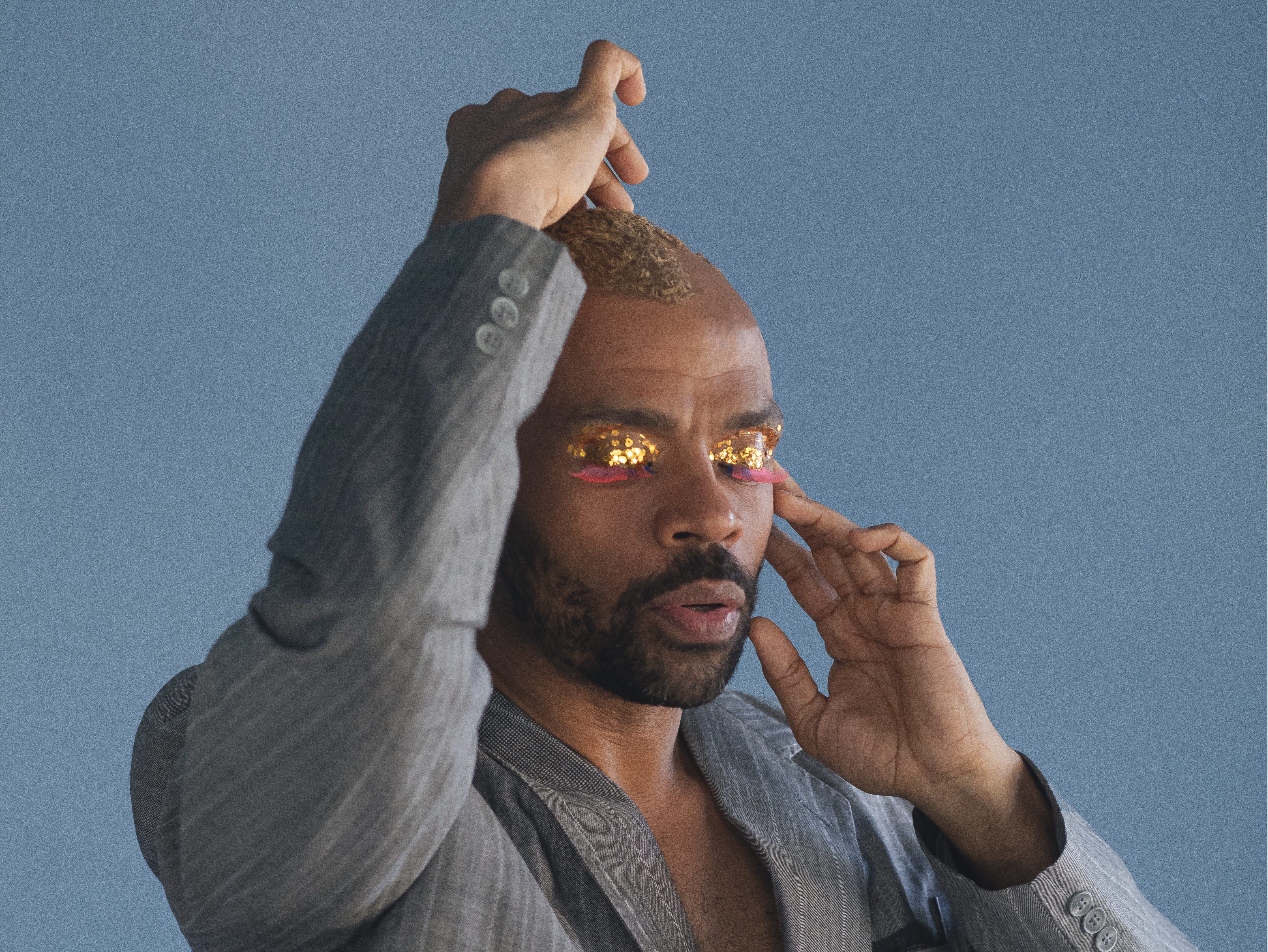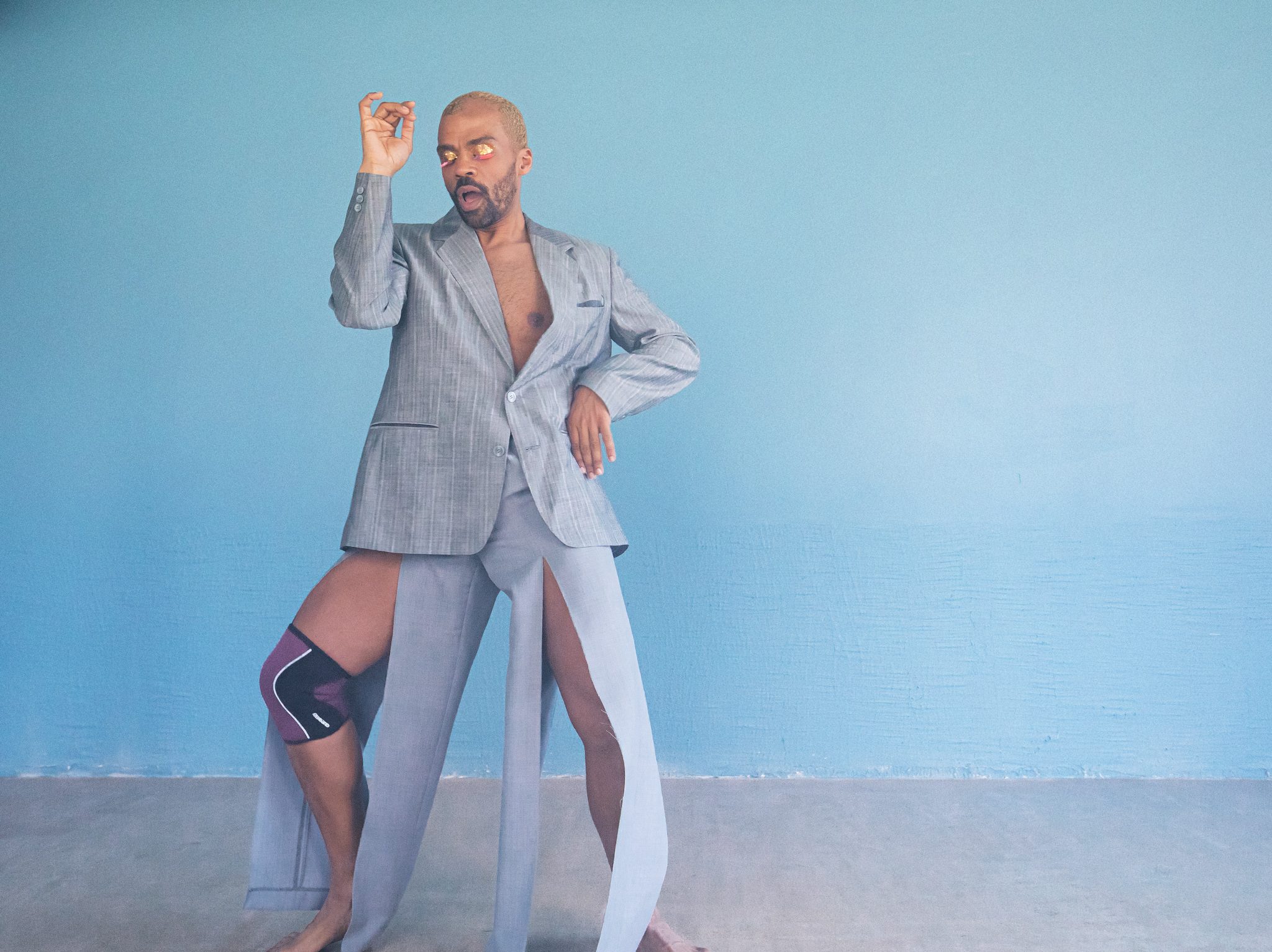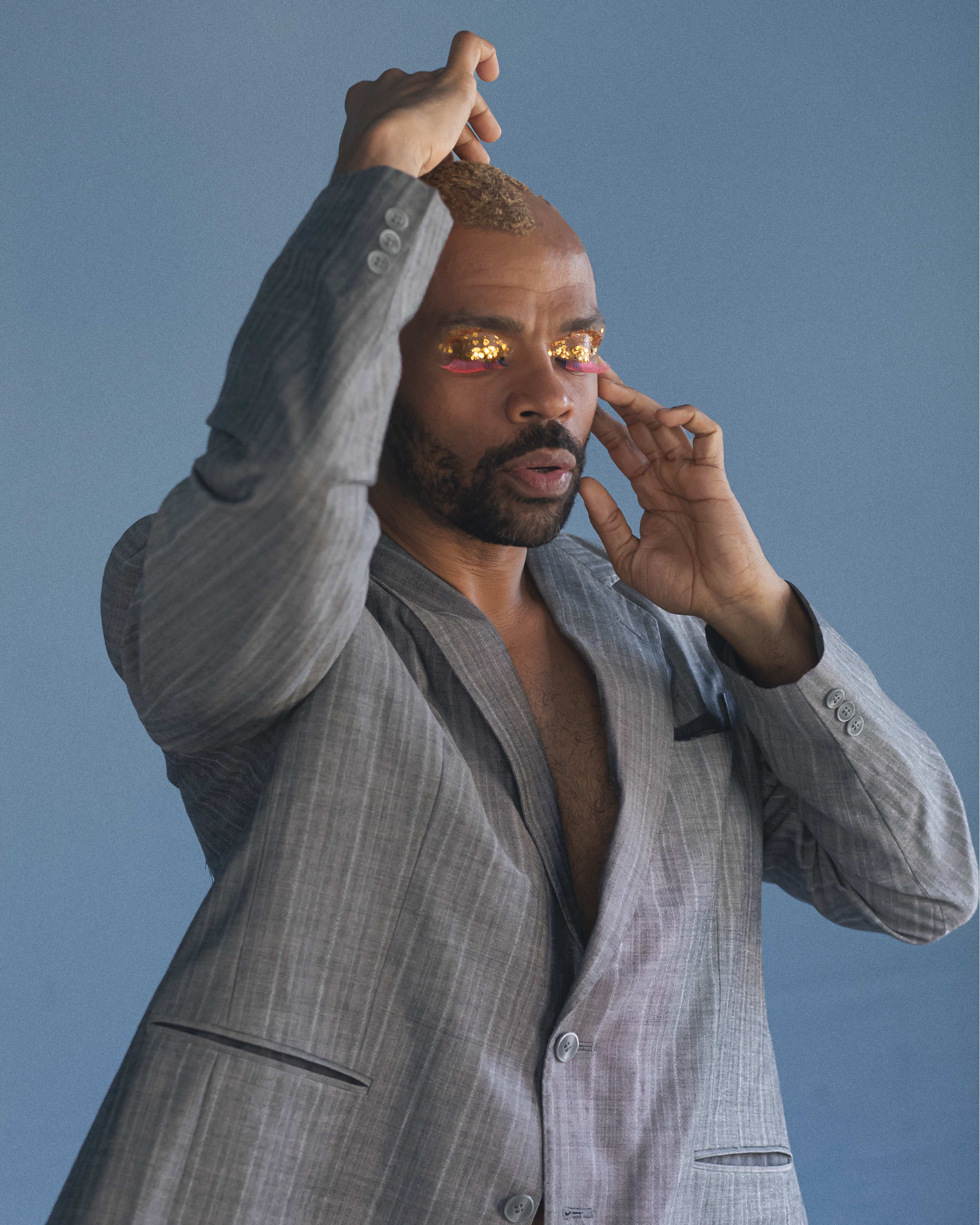When I first moved to Helsinki and heard some mentions of Jani Toivola, I got a sense that
everyone knew who this person was. It didn’t take me too long to understand the reason why
he is an iconic name in the country. As a performer, author, public speaker and the first-ever Black politician in the Finnish Parliament, Jani raises a powerful voice that fights for a more
equal and inclusive society.
After eight years as MP, he is back to his artistic career and working on a new performance, About Love, which premieres in January 2022. I spoke with Jani about his journey and how he found in vulnerability the strength to find his way – as an
artist and as a person.
DAJ: When I was searching for your work, I came across a video interview called I’ve Found the Performer in Me, where you shared a moving story of how you decided to
perform in your school and ended up receiving negative comments from your
colleagues. Yet, you decided to stay on stage and keep dancing. Back then, what was
the reason why you kept performing?
Jani: I remember going to that new place and community. I started practising my
performance, I chose my clothes and the music, I was very excited. Then the day came and
I went on stage. Of course, I was nervous, I wanted to do well, to remember the
choreography.
Everything was starting well but at some point, I started to hear the crowd – hundreds of teenage kids – yelling and saying I should get out and some offensive words about my identity and how I looked.
My first reaction was a huge panic and a need to run out of the stage, go home and call my
mom to tell her that we needed to move to another city. I was feeling like I was in the worst
moment of my life. But then, somehow, I just felt a really strong energy and need to stay
on stage.
I just saw myself continuing dancing and, all of a sudden, the more I was hearing
the screaming from the audience, the stronger I was feeling about my identity and who I
wanted to be as an artist. I don’t know what happened exactly at that moment, but it showed
me the core part of myself that I wasn’t willing to negotiate or give up. That episode was the
first time I recognised my core passion after going through the fear. And I don’t think there is anything more powerful than experiencing your own core, feeling you are above everything else – fear, shame. That was why I kept dancing on that stage.
After the performance, I remember that some kids came to me, excited. And I felt I had
found my peers. The lesson I got from that day was that every time you show who you are,
you can find your allies, your community.
DAJ: Back in those days, did you feel that movement and dance helped you discover
your identity?
Jani: Most definitely! It was hard being Black and growing up in Finland, in a predominantly
white country. It was very hard to find those mirrors that are able to show you who you are,
or people I could relate to. So, I think as an individual I started soon exploring what worked for me. Who am I, where do I want to go, what does it mean to be a Black person in Finland?
Or what does it mean to be a young gay boy?
I feel very lucky that I found arts and dance so early, as they were tools for me in a very turbulent time when you’re figuring out where I felt accepted, felt loved, where there was room for me to grow, experience and explore. And the stage has always been a place for me to discover all of this.
When I was growing up, I felt that the rules were very strict on how a young man is allowed to move. The picture was that men are not sensitive in terms of their bodies, that they are strong, lift things or destroy others. Or rather, because you’re a man, you don’t have a connection with your body. I think about this issue a lot on stage, when I’m exploring male identity and what the male body looks like.
DAJ: And then you decided to move to New York to study acting. Did that experience
change your life?
Jani: That’s a very big question. It was a big turning point in my life. I was twenty, coming
from Finland, which is a small, white-dominated country, where I didn’t have any stories to
relate to in terms of loving myself as Black and gay. When I landed in New York, I started
seeing black people everywhere, in different ages and styles and different positions of
society.
As an artist that was a big thing, as it was the first time in my life I saw other people who
looked like me on stage, whether it was acting or dancing and recognising elements of
movement that I carried with me, but I had never seen in the Nordic countries, where the
dance was more normative and strict. Going to New York allowed me to realise that moving
can be many different things, apart from roles, styles or genres.
Of course, moving there was also important for my identity. It was the first time I saw two
men holding hands on the street, or seeing an indie romantic comedy with two men playing
the lead roles. Or seeing families where there were two fathers with children – gay men,
loving each other, having a family. Until that point, I had thought that I had to choose
between being gay or becoming a parent. Seeing these people released me from all that
shame and fear and allowed me to also picture myself in that life.
DAJ: Who were you when you moved back to Finland?
Jani: When I came back to Finland, I still couldn’t find those pictures and cultures I had
experienced in New York. But I noticed that something had changed in me, like if I had been
into the future and returned to the present stronger, aware that change was possible
because it was already existing somewhere else.
After returning, I felt I could be myself and manifesting the life and work I wanted to do as an artist. Even today, I feel that I still have a strong connection with that time in New York. And if I didn’t move there, I couldn’t be the artist I am right now. That experience became a part of me, part of my work and it helped me break the unnecessary rules or ways of thinking that limits
what art is.


DAJ: You ended up becoming the first-ever Black member of the parliament in Finland
in 2011. When you first jumped into politics, what were the conversations you were
keen to bring up?
Jani: It was never my plan to become a politician or an MP. I wanted to be an artist, and
that’s what I did. But then, more and more conversations appeared in Finland about human
rights, equality and inclusivity, especially regarding same-sex marriage, gay rights and trans rights. All the elements that were closer to my heart. So I just started to be part of the
conversation.
By that time, I became a public person, so my opinions became more public, and people
started to react to it in a very positive way. That was how I ended up becoming a candidate
for the Green League party and then elected. It was all so strange because I felt that
everything changed in one day – the day before, you are an artist, performer, individual.
And then, it’s election night and the next morning you wake up and you are a politician, you
carry the whole story of politics on your shoulders.
Suddenly, I felt I was back in that school when I was thirteen when we had those strict
rules. I went to parliament and I felt the same kind of norms and pressure. It was a big
change.
My priorities when I started working as an MP were human rights, equality and LGBTQIA+
issues. I worked quite a lot with the school system and young people. But my number one
goal was to try to reach equal rights for marriage, which happily happened. We got same-
sex marriage approved in the parliament.
DAJ: Ten years later, where are we in terms of minorities in society? What are the
wins and the challenges for the future?
Jani: In ten years, I think we have reached quite a lot. There are more conversations about
different identities and issues such as racism or equal rights. But I still feel we have very
poor legislation concerning trans rights – and not only here in Finland. It seems that things
are not moving anywhere, which is a big concern.
When you talk about trans rights, it’s so easy to see it as a minority issue – it’s a small group
of people. And when it’s a small group, it’s easier to lose their voices in other people’s opinions. How often do we lose the ability to listen to their
needs? We should be thinking about stronger ways to listen to the trans community and
move in the direction they need.
DAJ: You have found multiple ways of expressing yourself such as writing, hosting
and performing. What is the core of your work? What’s your main mission?
Jani: For me, different forms of art are like different tools to answer the same questions. I
feel that I’m using the same core, but I just change the tools. Sometimes I write, other times
I act. Sometimes I use my body and I need to move or combine everything. I’m also very
interested in film.
But what the core is… I think it’s about finding a connection between myself and others,
about trying to create a space where people can hear themselves or listen to a community
with different stories and experiences about life. This is the way I found to share a piece of
my story – I show my vulnerability through my art.
At the same time, I try to reach new people all the time; I’m curious about having a diverse audience, which challenges me as an artist. When you have a certain kind of audience, and you get used to a certain kind of dialogue, you are expected to appear a certain way onstage. But then, somebody from the outside world comes to your show and doesn’t understand. I don’t want to be in that closed space, but asking the tough questions instead.
As artists, we need to be careful that we don’t stop changing or evolving. We need to keep asking: What’s wrong in our field? What do we need to change? Is it accessible to everybody? Do we need to define who can be an artist? Power structures are huge obstacles for artists.
That was why I launched a campaign to support my upcoming performance on Eventual. On these kinds of platforms, there are no gatekeepers, these traditional decision-makers believe they know what people want to experience. But when we allow something new to happen, we understand what the audience wants from us. That challenges both artists and audiences to be curious in a new way, to have the courage to try new things.
DAJ: You are now working on a performance called About Love. Can you tell us more
about the concept?
Jani: This new performance is based on my book that came out last Spring, which has the
same name. The book combines stories about my life, and they are all connected to love
and the experience of love in a male body’s experience. The performance works around the
same topic – How does it feel to live inside of a man’s body? What does it mean for a man to
love his body? Or what does it mean for a man to love another man? About Love is about
my relationship with myself, but also my relationship with other people, as a man.
I think that we still look at the male body so often without a story behind it – just as a figure
holding power or standing. But where is the sensitivity? Where are the different experiences
carried by that body? When I talk about my relationship with other men, it’s not only romantic but also as friendship – I’m very interested in exploring this idea of existing rules in male friendships; specifically when we talk about the body: are we allowed to be tender? Can we touch each other? Can we hold each other in our arms? I will be diving into this idea of
finding new forms of affection in male relationships.
